
The Dicastery for the Doctrine of the Faith (DDF) is the oldest among the departments of the Roman Curia. Its seat is the Palace of the Holy Office in Rome. It was founded to defend the Catholic Church from heresy and is the body responsible for promulgating and defending Catholic doctrine.

The Lutheran Church – Missouri Synod (LCMS), also known as the Missouri Synod, is a traditional, confessional Lutheran denomination in the United States. With 1.8 million members, it is the second-largest Lutheran body in the United States, behind the Evangelical Lutheran Church in America. The LCMS was organized in 1847 at a meeting in Chicago, Illinois, as the German Evangelical Lutheran Synod of Missouri, Ohio, and Other States, a name which partially reflected the geographic locations of the founding congregations.

The Wisconsin Evangelical Lutheran Synod (WELS), also referred to simply as the Wisconsin Synod, is an American Confessional Lutheran denomination of Christianity. Characterized as theologically conservative, it was founded in 1850 in Milwaukee, Wisconsin.

Lucia of Syracuse (283–304), also called Saint Lucia was a Roman Christian martyr who died during the Diocletianic Persecution. She is venerated as a saint in the Catholic, Anglican, Lutheran, and Eastern Orthodox churches. She is one of eight women explicitly commemorated by Catholics in the Canon of the Mass. Her traditional feast day, known in Europe as Saint Lucy's Day, is observed by Western Christians on 13 December. Lucia of Syracuse was honored in the Middle Ages and remained a well-known saint in early modern England. She is one of the best known virgin martyrs, along with Agatha of Sicily, Agnes of Rome, Cecilia of Rome and Catherine of Alexandria.

The Christian Congregation in Brazil was founded in Brazil by the Italian-American missionary Luigi Francescon (1866–1964), as part of the larger Christian Congregation movement.
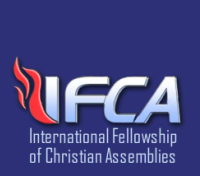
The International Fellowship of Christian Assemblies (IFCA), formerly known as the Christian Church of North America (CCNA), is a North American Pentecostal denomination with roots in the Italian-American community, but is now a multicultural denomination. Central offices are located in Transfer, Pennsylvania. Ministries of the church include Benevolence, Home Missions, FOCUS, Foreign Missions, Education, Lay Ministries, and Public Relations. A convention is held annually, and their official publication is Vista, a quarterly magazine.

Jozef Tomko was a Slovak prelate of the Catholic Church who held positions in the Roman Curia from 1962 until he retired in 2007. He was prefect of the Congregation for the Evangelization of Peoples from 1985 to 2001 and president of the Pontifical Committee for International Eucharistic Congresses from 2001 to 2007. He was made a cardinal in 1985.
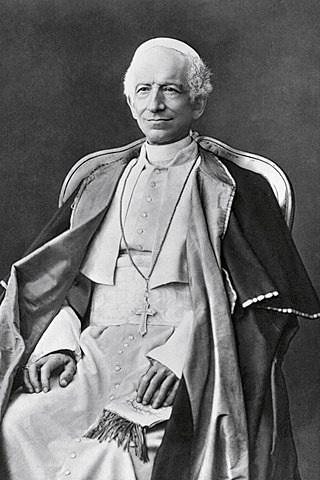
The papal conclave held from 18 to 20 February 1878 saw the election of Vincenzo Pecci, who took the name Leo XIII as pope. Held after the death of Pius IX, who had had the longest pontificate since Saint Peter, it was the first election of a pope who would not rule the Papal States. It was the first to meet in the Apostolic Palace in the Vatican because the venue used earlier in the 19th century, the Quirinal Palace, was now the palace of the king of Italy, Umberto I.
The Argentine Catholic Apostolic Church, also known as the Argentine National Church, is an Independent Catholic Christian church derived from the Brazilian Catholic Apostolic Church (ICAB). The ICAA was founded in 1971 in Buenos Aires by Leonardo Morizio Dominguez, with a clear right-wing political orientation and direct support from the ICAB.

The Assembleias de Deus are a church Pentecostal in Brazil founded by Daniel Berg and Gunnar Vingren, who came to Brazil as missionaries from the Swedish Pentecostal movement. The Assembleias de Deus are related to the worldwide Pentecostal movement, and some groups are affiliated with the Assemblies of God.

Louis Francescon was a missionary and pioneer of the Italian Pentecostal Movement. Several Pentecostal denominations and fellowships acknowledge him as their pioneer, including the Christian Church of North America, the Christian Assembly in Argentina, the Assemblies of God in Italy, the Christian Congregation in the United States, and the Christian Congregation of Brazil.

The cardinal electors in the 1963 papal conclave numbered 82, of whom 80 participated. This papal conclave met from 19 to 21 June 1963. This list is arranged by region and within each alphabetically.
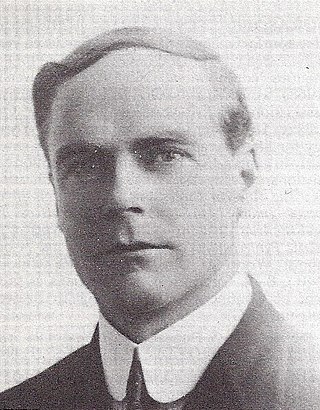
William Howard Durham was an early Pentecostal preacher and theologian, best known for advocating the Finished Work doctrine.
The U.S.- Italy Fulbright Commission is a bi-national, non-profit organization promoting opportunities for study, research, and teaching in Italy and the United States through competitive, merit-based grants. Since 1948, the commission acts as executor of the Fulbright Program to and from Italy.
The Evangelical Reformed Churches in Brazil is a Reformed church in the country of Brazil, a member of the World Communion of Reformed Churches.
The Assemblies of God in Italy, whose full name is Evangelical Christian Churches Assemblies of God in Italy, is a fellowship of evangelical and Pentecostal churches which functions as the Italian branch of the International Fellowship of Christian Assemblies, while being in communion with the World Assemblies of God Fellowship as well.
Pentecostalism is the fastest-growing Christian denomination in Brazil. Pentecostalism has surged since the 1990s while the largest denomination, Roman Catholicism, has undergone in a decline. At some points, churches were appearing as rapidly as one church per day. Pentecostalism in Brazil traces its roots to the Azusa Street Revival in 1906 in Los Angeles and, like Pentecostal movements in other countries, emphasizes a second act of grace following conversion that results in gifts of the Spirit such as glossolalia and healing.
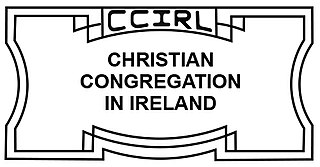
The Christian Congregation in Ireland is a non-sectarian, non-denominational fellowship of assemblies with roots in the Italian Pentecostal revival in Chicago, United States of America, which began in 1907, as part of the larger Christian Congregation (Pentecostal).
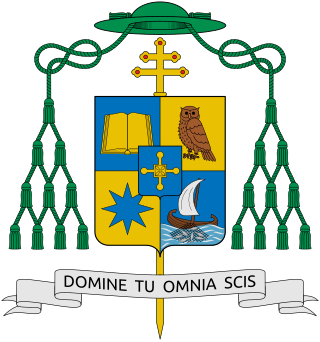
Giacomo Morandi is an Italian prelate of the Catholic Church who has been named bishop of Reggio Emilia-Guastalla. He served as the undersecretary of the Congregation for the Doctrine of the Faith from 2015 to 2017 and then as secretary until 2022. He was made an archbishop in 2017 and retains that as his personal title.




















